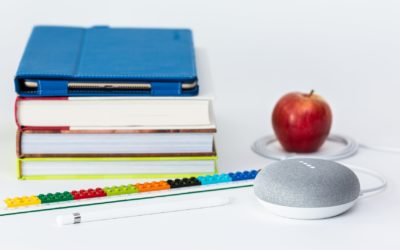What many tutors will have noticed is that many structured literacy strategies require frequent repetition because they focus remediation on tasks that are especially difficult for many dyslexic students – the automatic identification of the phonemes that make up words.
Q: How Can I Modify Curricula for Dyslexic Students Without Compromising Standards? [Premium]
We were asked: How can I modify the curricula for dyslexic students without compromising standards? MODIFICATIONS VS. ACCOMODATIONS Usually, when 504s or IEPs are discussed, accommodations are mentioned more often than modifications. Accommodations refer to changes in the way students access content and demonstrate what they know. So for instance, an accommodation for dyslexic students might include extra time, the option to use text-to-speech, or a human reader for tests so that assessment more accurately reflect what students know. Modifications, on the other hand are changes in the content of the curriculum, homework, or what a student is expected to learn. Examples of modifications in a curriculum for dyslexic students might include fewer problems, an option to use spellcheck and a word processor for […]
Teaching Geometry to Dyslexic Students [Premium]
“Henry Winkler… got his diploma in the mail only after taking the same geometry class eight times in a row over the course of four years, during the summers and regular school semesters, and finally passing with a D-.” — Alia Wong, “The MisEducation of the Fonz”, Atlantic Monthly It’s surprisingly hard to find research publications on teaching geometry to dyslexic students. One reason, suggested by Kay and Yeo in their book Dyslexia and Maths, is that numerical difficulties are more common among dyslexic students than geometric ones. They cite one study of 92 students followed over four years in which 50% failed to meet standards in Number Work, compared to 27% who missed for “Measure, Shape and Space.” That being said, because geometry is […]
Using CHATGPT as a Study Partner and Quiz Maker [Premium]
How can ChatGPT be used as a study partner? If you’re just getting started with ChatGPT and study, begin keeping a list of prompts that can help you prepare for exams. STUDY BUDDY, SELF-TEST, and QUIZMAKER FOR TEACHERS ChatGPT is very handy as a study buddy, especially if working from a knowledgeable source. For most dyslexics, making studying interactive, visual, and interesting can go a long way to making information easier to remember. Here are some examples of prompts and ChatGPT answers: Me: Provide partially worked examples to help me learn how to use transition words in complex sentences. Certainly! Understanding how to use transition words in complex sentences can greatly enhance your writing. Here are some examples with explanations: Despite the rain, we decided […]
Virtual Learning is Here to Stay
(Guest post from Stacy Scofield from sponsor Commonwealth Learning) More than three years have passed since the World Health Organization declared COVID-19 a pandemic. And now, with little pomp and circumstance, the Public Health Emergency Declaration is over. We made...
Teaching the Schwa [Premium]
What is the schwa? The schwa sound is the most common sound in English and symbolized by the upside-down e in International Phonetic Alphabet and is pronounced like “uh” in words like “the”. It’s a maddening sound because it’s not really associated with any specific letter of the alphabet…and that affects spelling as well as reading aloud. Sarah’s Snippets Literacy Nest has a nice series of post on teaching the schwa. Emily recommends starting with “a” words like “alike”, “panda”, “soda”, or “Alaska” that say “uh” instead of the long a sound. Add a little kinesthetic action like thumping the table to make recognizing the schwa more memorable. Students may need to master stressed and unstressed syllables first; The Call […]
Math: Teaching with Physical Materials [Premium]
Almost half of all dyslexic student may have math disabilities (Wilcutt et al.2013), but math disabilities or dyscalculia are rarely recognized in public or private schools in the US. All the more important for tutors, teachers, and parents to be aware of dyslexia-related differences in learning better ways of helping information ‘stick’. One helpful example for how to support math for dyslexic students comes from the Sagonaska Demonstration School. They have completely embraced multisensory learning and have considered how reading and writing challenges can affect the way students learn and show their work. Third Space Learning has nice graphics about this approach. Briefly, it involves introducing new math concepts with physical materials, then switching to the use of drawings (representations) to work […]
Language Teaching and Dyslexia: What About Exceptions to the Rules? [Premium]
The English language is especially difficult to learn if you are dyslexic – because about half of its words are not predictable by simple rules. So what to do? WORD FAMILIES Learning similar words in similar groups can be motivating for students because they learn many words at one time. Dyslexic students tend to be good at recognizing patterns, so approaches like these are well-suited toward dyslexic students. One site for word family lists can be found here. DON’T OVERSIMPLIFY THE RULES Problems usually arise when students are taught an oversimplified rule like “a silent e makes a vowel say its name”. The rule works for words like bake, bike, nose, and cute, but it doesn’t work for words like have or dance.
[…]Should I Homeschool?
With a large part of the world at least partially homeschooling this past year and students falling behind, some parents are asking whether they should homeschool their kids for the rest of the school year or perhaps for the 2022-23. Homeschooling during the pandemic...
Eugene Matusov on Teaching and Motivation [Premium]
I recently discovered Eugene Matusov’s writings on motivation and agency. He is a professor at the University of Delaware and he is also dyslexic. I found it interesting that he ended up choosing a career teaching other teachers and yet his early years seem to be fairly traumatic in school. He had some very bad learning experiences, but also good ones, and it’s clear that today, he remembers the good teachers that impacted his life and that the choices he made in his own career were influenced as much by the negative experiences as the positives. One negative experience that was shared involved a writing assignment that many of us are all-too-familiar with – “What I Did Over Summer Vacation.” Listen to Eugene tell […]
Lip Reading and Dyslexia [Premium]
There is a long and diverse research history of dyslexia and documenting the auditory processing difficulties associated with dyslexia that hinder phonological awareness. It’s why dyslexic kids will struggle in school when everyone is required to wear a mask. The sounds are muffled, but also if the teacher is masked, then students cannot look at the teachers mouth – as an additional cue to what sound is being made. In a recent study published by Annals of Dyslexia, researchers made an interesting observation: “those children with dyslexia who are better readers attended more to the mouth while presented with a person’s face in a phonologically demanding condition.” More research needs to be done about this issue, be aware of helps like watching a video of […]
Auditory Processing and Remote and Hybrid Learning
"Children with dyslexia often exhibit increased variability in sensory and cognitive aspects of hearing relative to typically developing peers." - Hornickel et al., 2012 PNAS There is a long research history establishing auditory processing difficulties among...

![MIND Strengths for Tutors: Material Reasoning [Premium]](https://www.dyslexicadvantage.org/wp-content/uploads/2024/04/Material-Reasoning-Premium-2-400x250.jpg)
![Q: How Can I Modify Curricula for Dyslexic Students Without Compromising Standards? [Premium]](https://www.dyslexicadvantage.org/wp-content/uploads/2024/03/Modify-Curricula-for-Dyslexic-students-400x250.jpg)
![Teaching Geometry to Dyslexic Students [Premium]](https://www.dyslexicadvantage.org/wp-content/uploads/2024/02/Teaching-Geometry-to-Dyslexic-Students-400x250.jpg)
![Using CHATGPT as a Study Partner and Quiz Maker [Premium]](https://www.dyslexicadvantage.org/wp-content/uploads/2024/02/chat-gpt-dyslexia-400x250.png)

![Teaching the Schwa [Premium]](https://www.dyslexicadvantage.org/wp-content/uploads/2023/05/Teaching-the-Schwa-Premium-1-1.jpg)
![Math: Teaching with Physical Materials [Premium]](https://www.dyslexicadvantage.org/wp-content/uploads/2023/05/Teaching-with-Physical-Materials-e1683788874447-400x250.jpg)
![Language Teaching and Dyslexia: What About Exceptions to the Rules? [Premium]](https://www.dyslexicadvantage.org/wp-content/uploads/2022/10/Language-Teaching-and-Dyslexia-1-Dyslexic-Advantage-2.jpg)

![Eugene Matusov on Teaching and Motivation [Premium]](https://www.dyslexicadvantage.org/wp-content/uploads/2021/11/Eugene-Motivation-400x250.jpg)
![Lip Reading and Dyslexia [Premium]](https://www.dyslexicadvantage.org/wp-content/uploads/2021/11/lip-reading-400x250.jpg)














